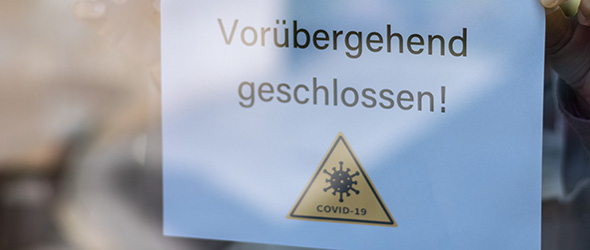The group behind the article includes Viola Priesemann from the Max Planck Institute for Dynamics and Self-Organization in Göttingen, Melanie Brinkmann from the Helmholtz Centre for Infection Research in Brunswick, and Andreas Peichl from the ifo Institute. “A determined and coordinated European response to the pandemic is also necessary from an economic point of view due to the economic interdependence of European countries,” Peichl says.
The scientists call for a reduction in the number of physical contacts by switching to working from home and to online schooling whenever and wherever possible. Furthermore, in all private and professional settings, small, stable social bubbles or groups should be preferred over alternating contacts.
Further prevention measures the scientists advocate include physical distancing, hygiene, face masks, ventilation, and use of filters. People should avoid closed and crowded spaces, and stay at home if they experience symptoms. FFP2 masks should also be provided at no cost to those in need, and for all employees at work.
In addition, free testing should be offered in schools and workplaces as a preventive measure to detect outbreaks early. The scientists urge for increased testing capacity to meet demand and for the introduction of wastewater surveillance to detect local surges in cases. Sequencing of the new SARS-CoV-2 variants should also be increased.
Travel within and across countries must be restricted to only the most essential journeys, they state. Cross-border travelers should be required to quarantine and to take a test 24 hours before travel as well as 7 to 10 days after travel.
The group also calls for improved protection of and support for the elderly and other vulnerable groups. Lower numbers of cases and undetected infections decrease the risk of the virus being spread inadvertently. The pace of vaccination also needs to be increased, and production of the vaccines scaled up. Infections among vaccinated people should be monitored, too, to help detect possible reinfection with new variants as soon as possible.
Original publication:
Viola Priesemann, Rudi Balling, Melanie M Brinkmann, Sandra Ciesek, Thomas Czypionka, Isabella Eckerle, Giulia Giordano, Claudia Hanson, Zdenek Hel, Pirta Hotulainen, Peter Klimek, Armin Nassehi, Andreas Peichl, Matjaz Perc, Elena Petelos, Barbara Prainsack, Ewa Szczurek. An action plan for pan-European defence against new SARS-CoV-2 variants. The Lancet. January 2021, DOI: 10.1016/S0140-6736(21)00150-1
Available in other languages here: https://www.containcovid-pan.eu/
See also https://www.thelancet.com/journals/lancet/article/PIIS0140-6736(20)32625-8/fulltext
To the ifo Institute press release: https://www.ifo.de/en/node/61387
Press contact:
Prof. Clemens Fuest, 0049 89 9224 1257, Fuest(at)ifo.de
Dr. Viola Priesemann, presse(at)ds.mpg.de
Prof. Melanie Brinkmann, presse(at)helmholtz-hzi.de

